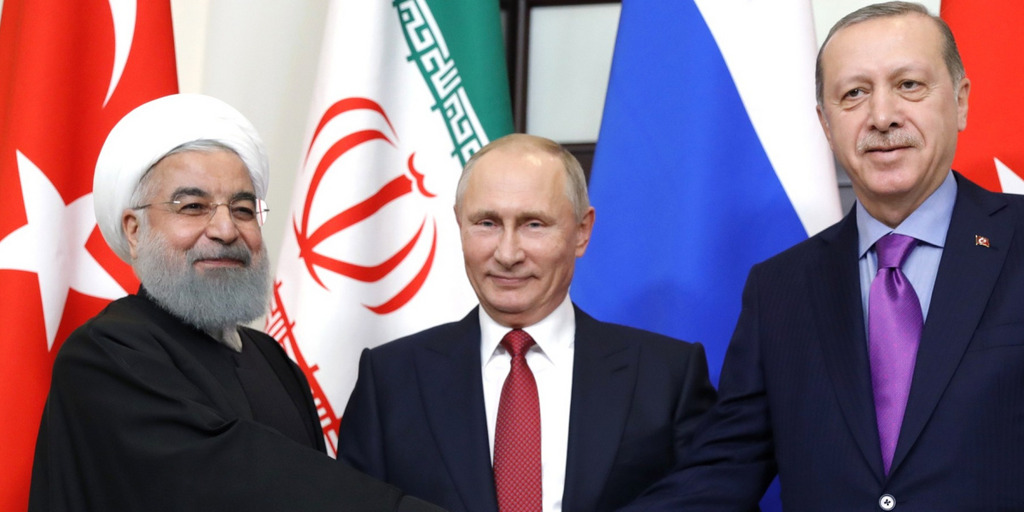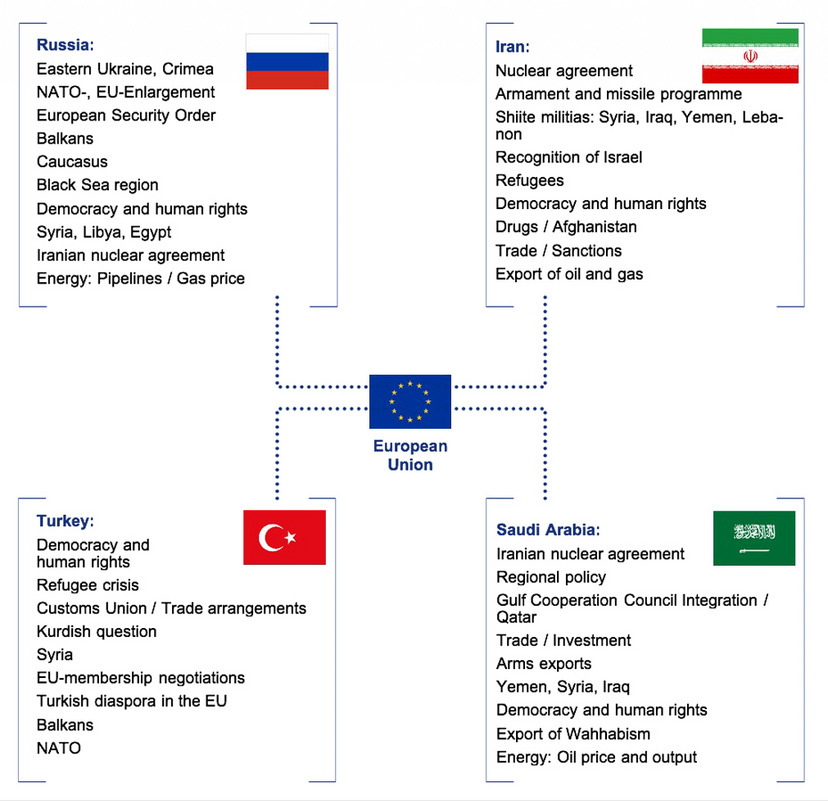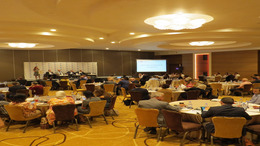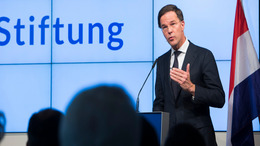
Kremlin.ru / Wikimedia Commons - CC BY 4.0, https://creativecommons.org/licenses/by/4.0/deed.en
Opponent or partner? The EU and the neighbours of their neighbours
Political decisions taken by Russia, Turkey, Iran and Saudi Arabia have a direct impact on stability and prosperity in the neighborhood of the European Union and on the EU itself. In a new project activity focusing on the EU’s neighbours and initiated by Bertelsmann Stiftung, country experts are analyzing the interests of these "key states," as well as the goals of their policies and interdependencies among themselves and with the EU.
The current offensive against Idlib, a region in northern Syria where almost three million people live, raises many questions. In addition to the situation of the civilian population and expected streams of refugees, these include uncertainties about the motivation, actions and positioning of Russia, Iran and Turkey in the Middle East. The summit meeting of the heads of state of the three countries mentioned, which is taking place in Tehran on Friday, 7 September, is therefore receiving much Attention.
It is important to the EU and its member states that their immediate neighbours form a “ring of stable, friendly states”. In the southern neighbourhood these are Syria, Morocco, Algeria, Tunisia, Libya, Egypt, Israel, the Palestinian Territories, Jordan and Lebanon, in the eastern neighbourhood Armenia, Azerbaijan, Belarus, Georgia, Moldova and Ukraine, since 2009 under the umbrella of the "Eastern Partnership".
However, the “neighbours of the neighbours” – Russia, Turkey, Iran and Saudi Arabia – are also playing an active role in the common neighbourhood. Conflicts of values and interests have thereby increased. The reforms proposed by Brussels are often at odds with the actions taken by the key states, which are not concerned with the rule of law and basic rights or with structural reforms in neighbouring nations.
It goes without saying that the Neighbourhood Policy focusses first and foremost on the interests of the EU’s neighbouring states. At the same time, it is important to properly understand the interests of the neighbours on the other side of the neighbouring region – and to be able to assess how they are impacting political and social developments in the neighbouring countries. The same is true for the interdependencies between the EU and the key states, and among the key states themselves.
As part of the Europe’s Future programme, the Strategies for the EU Neighbourhood project has convened a strategy group of independent country experts to examine the policies of the key states, which have been selected on the basis of their geographic proximity and their history. This paper provides an initial overview and offers background knowledge to better understand the complex situation in the affected regions. Further policy briefs will complement and deepen the initiative in coming months.




![[Translate to English:] Auf dem Bild: Irina Scherbakowa](/fileadmin/files/_processed_/0/2/csm_Irina_Scherbakowa_Lunchtime_2018_St-CC_Original_80454_6907823745.jpg)



